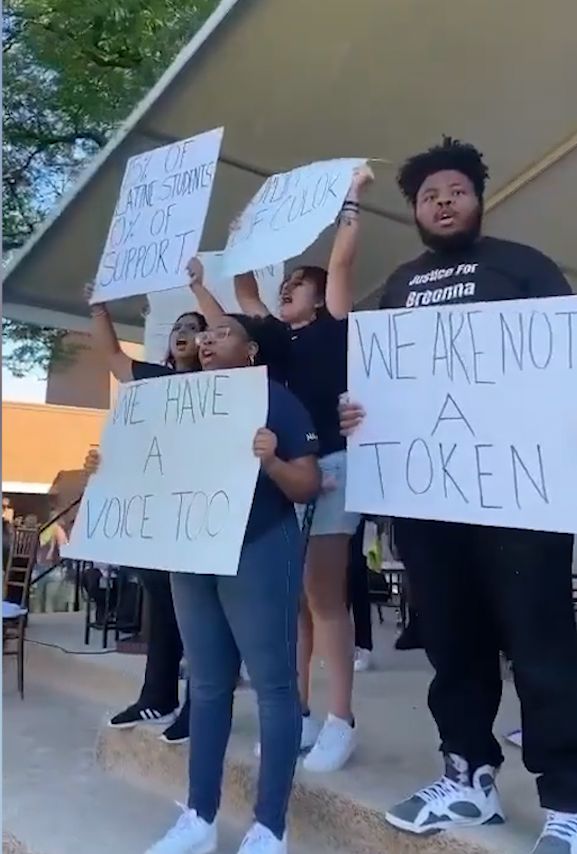MILWAUKEE — On Thursday, members of the Black Student Council of Marquette University protested the university’s New Student Convocation, an event that welcomes students to campus.
And for students Samari Price and Lionel Clay, the decision to protest boiled down to the treatment of Black students and faculty on campus, and the lack of support for the Office of Engagement and Inclusion and Urban Scholars Program.
Price said issues like these make life harder for minority students on campus.

“Usually there is a convocation to welcome students, but we felt like, how is it welcoming when all of these students, especially the 30% students of color, are going to come into this university and they are going to experience racism and oppression? That’s not welcoming students at all,” said Price.
In response, Marquette University said they would reschedule the convocation because of the disruptive nature of the demonstration. They also issued a statement saying they are deeply committed to advancing diversity, equity and inclusion on campus.
“As a result of our ongoing efforts, 30% of our incoming first-year class identifies as students of color and we believe our overall diversity this fall will be at an all time-high, along with the most faculty and staff in our history as well,” they added in the statement.
Despite this, Clay said the university is understaffed for the Urban Scholars Program.
“They only have one full-time faculty member present in the entire department and only one part-time faculty member who can only accommodate five individuals. So when you do the math, that’s putting around 80 students advising, meeting hours, all on one individual — and that’s not a sustainable program,” said Clay.
Marquette University said they’ve already committed to hiring another full-time person for the Urban Scholars program in 2023 and that they continue to grow the program for first-generation and financially disadvantaged students in the Milwaukee area.
But Clay said he thinks that’s still not enough.
“The staff that they plan on hiring is just one more coordinator, so that’s a program that by that time will have to support 120 scholars, not 80 — 120 scholars and they will only have one full-time faculty member and one coordinator,” said Clay. “That is the reason why we felt like we had to protest because while the university may claim to support these programs, they are not providing the foundational resources to actually support that claim.”
Price said the lack of support they are getting from the university is frustrating but that he wants student of color to know that they have a voice, they belong and can succeed at Marquette.
She also said she wanted to clear the air about the protest.
“We were told that we are loved, but then we were also told that we were a disruption and that we were being disruptive and that is something I would like to address,” said Price. “Because as students on this campus, when you constantly have meetings with people and you’re sitting down face to face with people or even virtually, and you are telling people what’s going on, and they bypass every single thing that you say, it’s like, what else can you can do?”
Price said this protest was something they felt was necessary to get the attention of the university because their other “peaceful” methods weren’t getting through.
“We want people to know that in this moment, you are going to hear what we have to say, whether we are on this stage or not,” said Price.
Both Price and Clay said they hope the protest of the convocation will spark more dialogue that will lead to positive change.



?wid=320&hei=180&$wide-bg$)